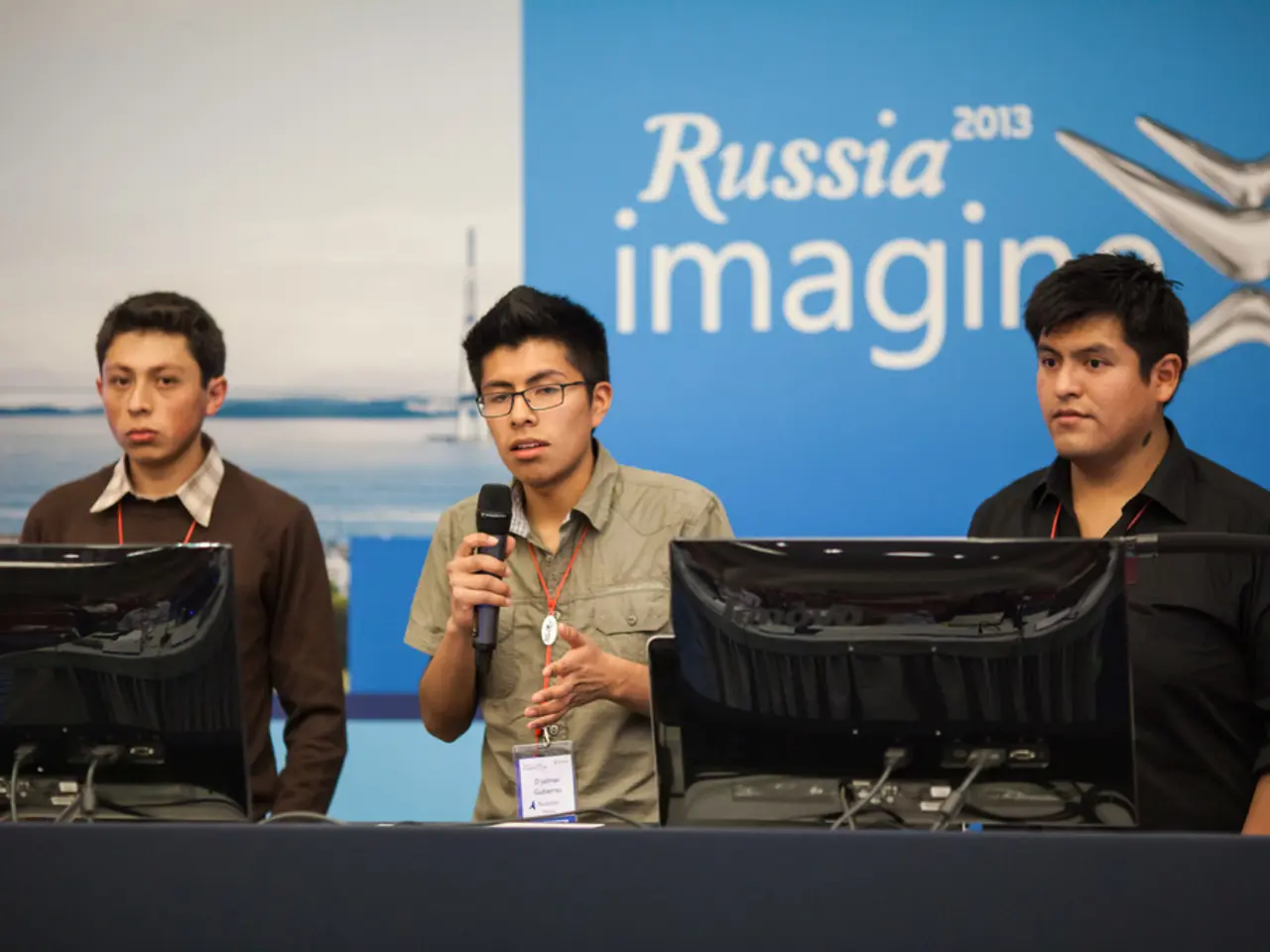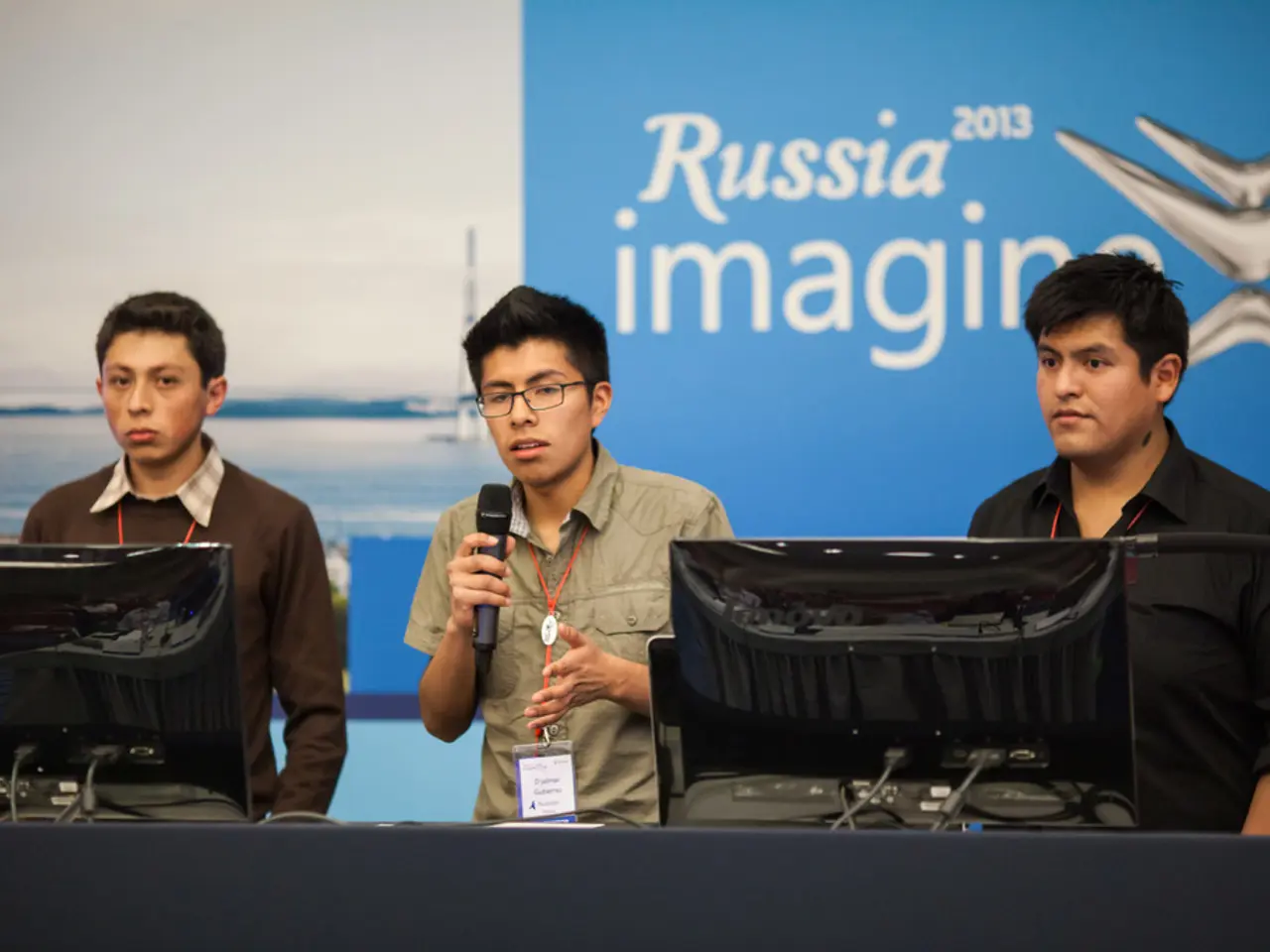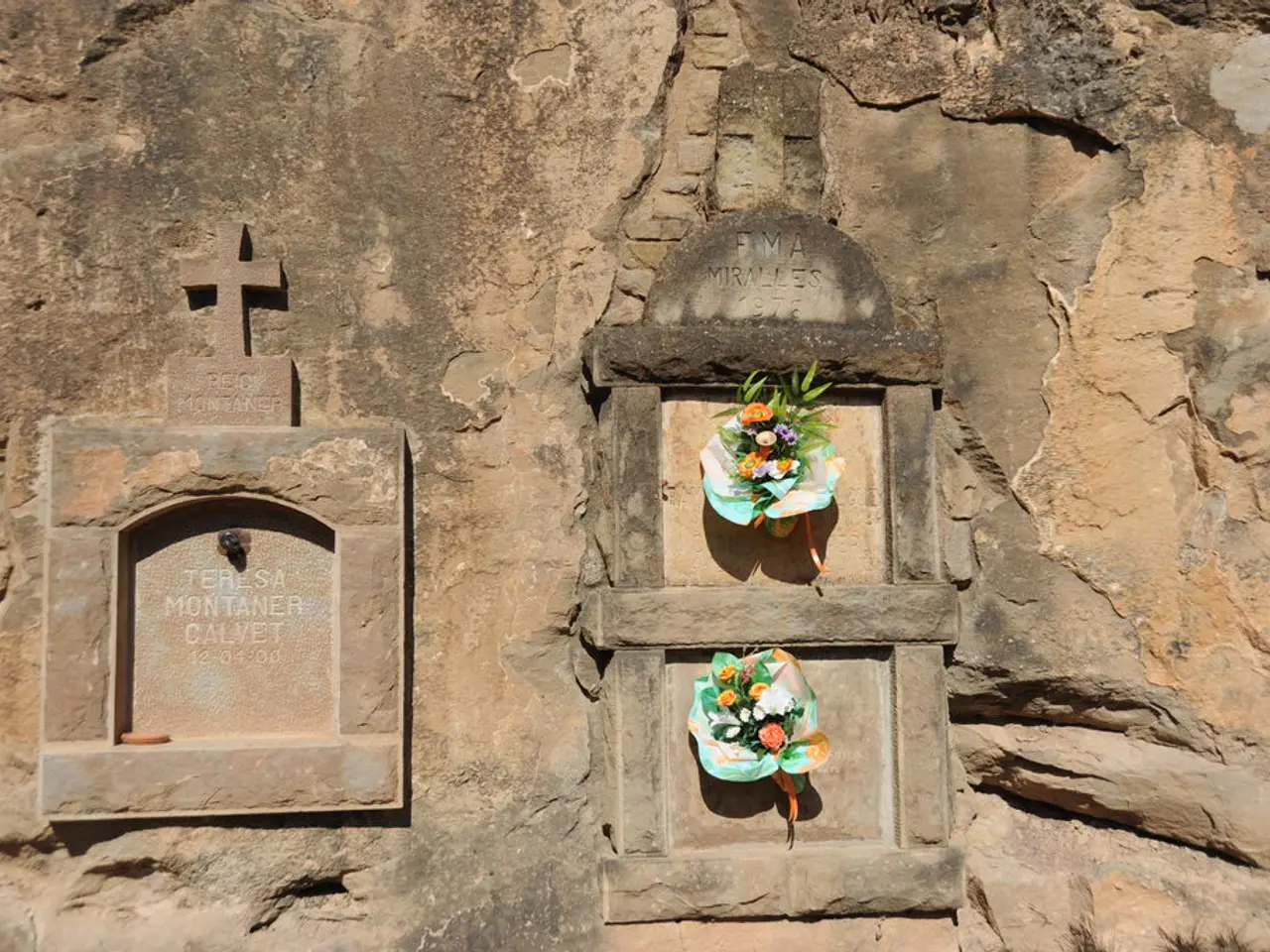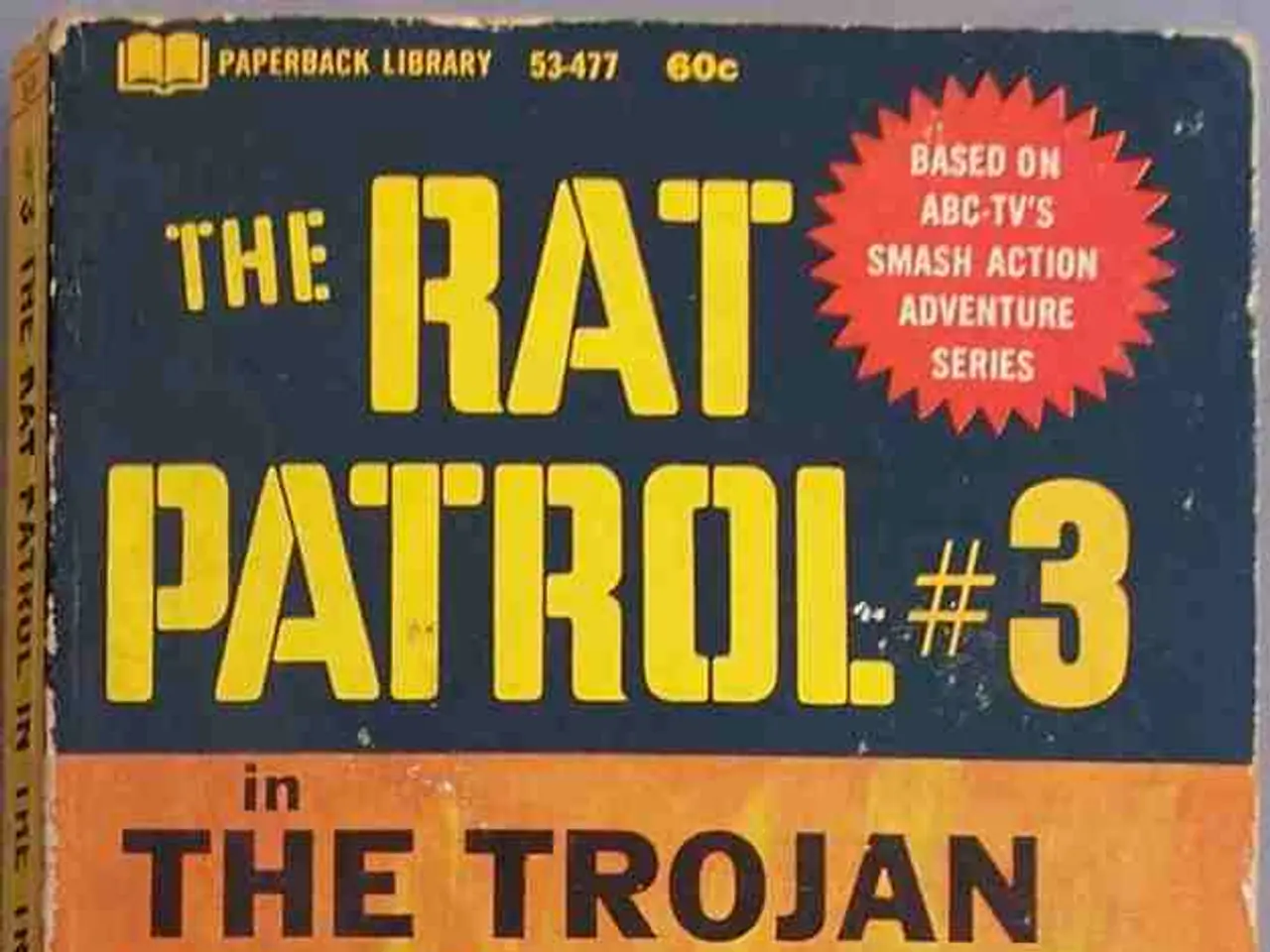Russia's strategic assault on Moldova's democratic governance
Moldova's Upcoming Parliamentary Election: A Battleground for Democracy
The political landscape of Moldova is heating up as the country gears up for its national parliamentary election on September 28, 2025. The election is significant, as it will determine whether Moldova remains on its democratic path or leans towards pro-Russian parties.
The pro-Russian four-party "Patriotic Bloc," which includes former-President Igor Dodon, is expected to stand for election. The bloc's election platform includes the "restoration of relations with Russia." This development has raised concerns, as Russia has a history of interfering in Moldova's elections and politics.
Russia's interference in Moldova's political affairs has taken various forms, including disinformation campaigns, vote-buying, illicit funding of politicians, cyber-attacks on the electoral commission, and attempts to undermine institutional trust to delay Moldova's EU integration. These tactics are designed to sow doubt in Moldova's democratic system, create uncertainty, and cause political chaos.
The current political situation in Moldova is highly volatile due to intensified Russian interference aimed at destabilizing the country's pro-European trajectory. The government, led by pro-EU President Maia Sandu and her Party of Action and Solidarity (PAS), has made some progress on reforms and alignment with EU standards but faces economic pressures and public skepticism partly fueled by Russian efforts.
Russian-backed groups and politicians use the "pro-Russian" label to discredit opposition forces, while PAS faces criticism for electoral rule changes and investigations into opposition figures. Despite these challenges, PAS won an absolute majority in Moldova's 2021 parliamentary election, indicating strong support for its pro-European stance.
Internationally, Moldova receives strong support from Western partners like the UK, which condemns Russia's malign influence and affirms backing for Moldova's sovereignty and democratic reforms. Moldovan authorities are actively working to safeguard electoral integrity and cooperate with organizations like OSCE to counteract foreign interference.
Notably, Russia denies involvement in election interference in Moldova. However, reports suggest that Russian allies like Dmitry Kozak, author of a 2003 plan proposing a loose federation of small states in Moldova, and Vladimir Plahotniuc, a former Moldovan oligarch, may be working to reactivate networks aimed at returning Moldova to Russia's fold. Plahotniuc, who is reported to have met with Kozak, was recently arrested in Greece on various charges, including his suspected role in the "Billion Dollar Heist" between 2012 and 2014.
The Transnistria region of Moldova is under the control of a separatist regime backed by Russia, and Russia has stationed its soldiers and a massive arms arsenal in the region, in breach of international law. These developments have made Moldova a whole-of-Europe affair due to the extensive Russian sabotage efforts.
Russia's tools include paid public protests, massive vote buying, flooding social media with fake news and AI-generated content, and hacker attacks on IT systems. One of the most notable examples of these tactics was seen in Moldova's 2020 presidential election, where Ilan Shor, a Moldovan-Israeli businessman, was behind a vote-buying campaign. Shor has since founded the "Victory" party alliance in Moscow, which was barred from Moldova's September election by the Central Election Commission (CEC).
In the midst of these challenges, Moldova's voters chose Maia Sandu, an anti-corruption activist, to head their government in mid-2019. Sandu's leadership offers hope for a more transparent and accountable government in Moldova, and her commitment to democratic reforms and EU integration is crucial in the face of Russian interference.
As Moldova heads towards its parliamentary election, the international community must remain vigilant and support Moldova's efforts to safeguard its democracy and sovereignty. The election is a critical juncture where Russian hybrid interference is deliberately targeting the democratic process to disrupt Moldova's EU integration, but the government and its Western allies are mobilizing to defend electoral integrity and democratic progress.
[1] BBC News, "Moldova election: Pro-Russian parties lose out in vote," 15 July 2021, https://www.bbc.com/news/world-europe-57871241
[2] Reuters, "Moldova's pro-EU Sandu wins absolute majority in parliament," 15 July 2021, https://www.reuters.com/world/europe/moldovas-pro-eu-sandu-wins-absolute-majority-parliament-2021-07-15/
[3] The Guardian, "Moldova election: Maia Sandu's pro-EU party wins majority," 15 July 2021, https://www.theguardian.com/world/2021/jul/15/moldova-election-maia-sandus-pro-eu-party-wins-majority
[4] The Washington Post, "Moldova’s pro-European president faces a tough test as Russia ramps up pressure," 18 June 2021, https://www.washingtonpost.com/world/europe/moldovas-pro-european-president-faces-a-tough-test-as-russia-ramps-up-pressure/2021/06/18/275885a8-06d5-11eb-a79f-77477462f9de_story.html
[5] Radio Free Europe/Radio Liberty, "Moldova's Pro-Western President Maia Sandu Says Elections To Be Fair," 10 June 2021, https://www.rferl.org/a/moldova-president-maia-sandu-says-elections-to-be-fair/31173897.html
- The upcoming parliamentary election in Moldova has garnered international media attention due to its significance in the country's political path, as well as Russia's history of interfering in Moldova's elections and politics, specifically through disinformation campaigns, vote-buying, and cyber-attacks.
- The general news and European political landscape are abuzz with the expected run of the pro-Russian "Patriotic Bloc" in Moldova's parliamentary election on September 28, 2025, which could potentially shift Moldova's relationship with Russia.
- As news reports and political analysis discuss Moldova's political situation, there are concerns about Russian interference aimed at destabilizing Moldova's pro-European trajectory, and efforts to counteract these tactics have been made by Moldovan authorities and Western partners alike.
- The media's coverage of Moldova's parliamentary election will likely delve into the volatile political situation in Moldova, where the government, led by pro-EU President Maia Sandu, faces challenges in the form of economic pressures and public skepticism partly fueled by Russian efforts, but also enjoys strong support from Western partners like the UK.








